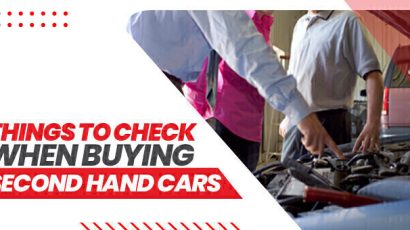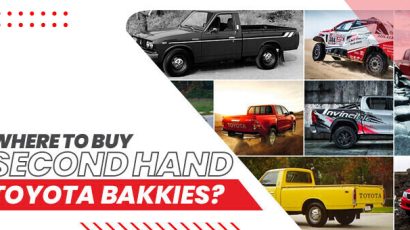
Buying a used car can be a strategic move to save money while still getting a reliable vehicle. But did you know that timing your purchase can make a significant difference to the deal you secure? Just like many other major purchases, buying a used car is all about hitting the market at the right time. So, when exactly is the best time of year to buy a used car? Let’s explore some expert insights on the best times to buy, how to plan ahead, and why timing matters.
Why Timing Matters in the Used Car Market
Timing plays a crucial role in buying a used car because of how supply, demand, and market trends fluctuate throughout the year. Dealerships and private sellers often have different sales targets or motivations depending on the season, holidays, and new car model release cycles. As a buyer, understanding these patterns can help you identify when prices are likely to be lower. It can also help identify when incentives are more attractive.
Several periods throughout the year offer unique opportunities to get a good deal. Some include the time when dealerships need to clear out old inventory, while others coincide with significant sales events or specific months.
End of the Month: Closing the Sales Quotas
One of the most well-known tricks for buying a used car is targeting the end of the month. Salespeople and dealerships usually work towards monthly quotas, and when the deadline approaches, they are more motivated to close deals. At the end of the month, dealerships may be more willing to negotiate prices and provide additional incentives or discounts just to meet their sales targets. This is a great opportunity for savvy buyers to secure a lower price on a used car that has been lingering on the lot.
Key Benefits of End-of-Month Shopping:
- Salespeople may be more flexible in pricing.
- Greater chance of receiving additional perks or bonuses.
- Inventory push may offer better bargaining power.
The End of the Year: Dealerships Clearing Inventory
The end of the calendar year, specifically the months of November and December, is a golden window for buying a used car. Dealerships want to clear out their existing inventory to make room for new-year models and hit annual sales targets. In these months, you’re likely to find reasonable prices as dealers aim to close the year on a high note.
Moreover, major holiday sales, like Black Friday in November and year-end clearance events in December, often come with special financing options, attractive deals, and bundled offers. While these promotions may be primarily focused on new cars, used car deals are not left out of the mix.
Key Benefits of Year-End Purchases:
- Best discounts and clearance deals.
- Dealers are highly motivated to meet annual quotas.
- Opportunity for bundled deals or additional offers.
Fall: When the New Models Roll In
The fall season, especially between September and October, can be another ideal time to buy a used car. New car models typically arrive during this period, pushing dealers to clear their lots of the previous year’s models and even certified pre-owned (CPO) vehicles.
Additionally, when new models hit the market, car owners are more inclined to trade in their old cars to get the latest releases. This increased inventory of trade-ins means that used car prices may drop due to higher availability and competition among sellers.
Key Benefits of Fall Purchases:
- A larger inventory of trade-ins is available for selection.
- Greater leverage for negotiations due to increased supply.
- Opportunity to get newer, lightly used models.
Holidays and Sales Events: Securing Seasonal Discounts
National holidays and major sales events are prime opportunities for buying used cars. Dealers often launch promotions around significant holidays like Memorial Day, the Fourth of July, and Labor Day. While these holidays are often associated with new car sales, dealers don’t want to miss out on used car buyers either, so they typically extend discounts to pre-owned models as well.
Holiday sales events can also bring additional financing options, free add-ons, or extended warranties, making them a good time to secure a favorable deal. Memorial Day in May and Labor Day in September are two key holidays to keep on your radar.
Key Benefits of Holiday Purchases:
- Access to limited-time discounts and promotional deals.
- Better financing and flexible payment options.
- Often comes with extended warranties or additional services.
Winter Months: Dealers Want to Move Inventory
Winter months like January and February are often considered a buyer’s market. Post-holiday periods usually come with lower foot traffic and demand, leading dealers to offer special deals to attract buyers. Since winter is not the peak season for car sales, buyers have more room to negotiate with sellers looking to offload their inventory.
Additionally, tax season in late winter often encourages sellers to push for sales as they plan for tax filings and aim to generate revenue during a slow period.
Key Benefits of Winter Purchases:
- Lower demand equals more negotiation power.
- Dealers are looking to offload end-of-year models.
- Chance to buy from private sellers needing quick cash.
Spring: Be Cautious of Higher Demand
While winter months present great opportunities, springtime can be a mixed bag for used car buyers. As the weather gets better, demand often rises, leading to higher prices. People may receive their tax refunds and look to upgrade their cars, causing competition to heat up in the used car market. This season may not offer as many deals compared to the end of the year or winter months.
However, with new car releases in the fall and subsequent trade-ins, spring can still be a decent time to find a well-maintained used car with slightly older models in circulation. It’s essential to watch the market carefully if you’re considering a purchase in spring.
Weekdays: Timing Within the Week Matters Too
Interestingly, the best time of the week to buy a second-hand vehicle is typically on weekdays, particularly Mondays and Tuesdays. Dealerships tend to be less busy at the beginning of the week, giving you more attention and flexibility in negotiations. On weekends, when showrooms are full of customers, salespeople may have less room for negotiations as they are juggling multiple deals simultaneously.
Key Benefits of Weekday Purchases:
- Less crowded dealerships lead to better, focused service.
- It is easier to test-drive and inspect vehicles without waiting.
- More relaxed negotiations and time to consider your options.
Final Thoughts on Timing Your Used Car Purchase
Overall, buying a used car requires a strategic approach to secure the best deal possible. The best times to buy a pre-owned car usually align with when dealerships are most eager to hit their sales targets or clear out inventory. Therefore, targeting the end of the month, the end of the year, and major holidays can yield substantial savings.
However, it’s equally important to prepare yourself by knowing the market, conducting research, and staying patient for the right opportunity to arise. Lastly, by understanding the seasonal and periodic trends in the used car market, you can time your purchase effectively, negotiate better deals, and walk away with a used car that meets both your budget and needs.
Discover the Toyota Camry 2010 price in Nigeria with our updated cost estimates.











